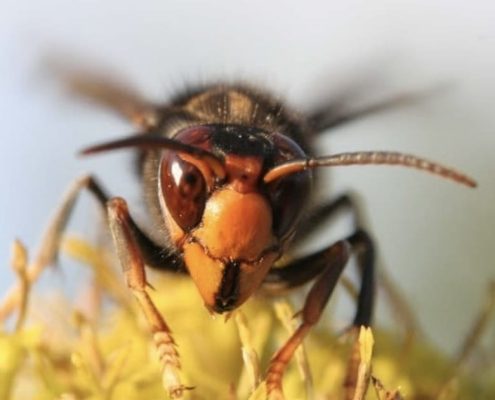Is a YLAH sting more painful than that of a Bee or a wasp?
It’s not straightforward as it varies from person to person – typically wasp venom is more poisonous but there’s less of it than a bee sting and for a Hornet whilst there is more venom it’s not usually as concentrated. The other reasons why it’s not easy to answer is that bee venom is acidic whereas wasp and hornet venom is alkaline and reaction to the two compounds varies from person to person. Also a bee stinger is barbed and left in the wound and will carry on pumping venom into the victim unlike the stinger of a wasp or Hornet. According to work done by the Nobel laureate Justin Schmidt – hornet, wasp and bee stings are on the same pain threshold level. But whichever you get stung by it’s still very painful!
Have there been more deaths reported because of YLAH?
In France where they have had YLAH present for a lot longer than us in the UK there doesn’t seem to be any significant increase in the number of people hospitalised or dying as a result of the YLAH invasion, last year 5 were reported, bear in mind that over the last 20 years colony numbers in France have grown to around have 500,000 in a typical season!. So despite newspaper headlines to the contrary the is no evidence for significant numbers of people being affected. One thing to remember is that if the colony numbers in the UK increase people are more likely to come into contact with YLAH as they are less selective in their choice of nest site. A lot are being found in towns and villages rather than wooded areas that the European Hornet seems to prefer. For example, in southern France nest density has been reported as high as 10 per sq. Km.
YLAH area not normally aggressive but will vigorously defend their nest when they feel threatened and can mount “mass attacks” – so avoid. Bear in mind nest sites can be in hedgerows as well as trees.
For more information a good article in The Guardian to look at:https://www.theguardian.com/environment/2024/mar/25/asian-hornet-may-have-become-established-in-uk-sighting-suggests-danger-to-bees-winter-stay



 © Gilles San Martin CC BY-SA 4.0
© Gilles San Martin CC BY-SA 4.0